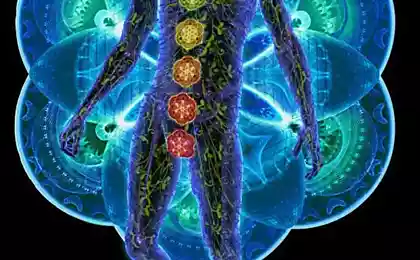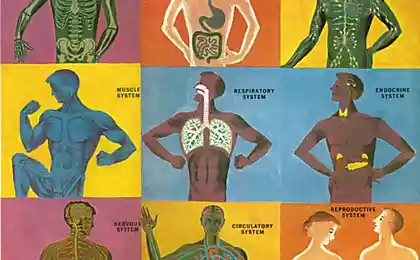577
Why it is impossible to tickle yourself
Find out what happens in the brain when schekotke
Even if you are very ticklish, yet you probably noticed that if you try to tickle yourself, this is unlikely to happen. The reason for that - especially the reactions of the human brain to external stimuli: the cerebellum, which is responsible for coordination and motor skills, able to distinguish between feelings and expectations arising unexpectedly. Typically, the reaction to the "scheduled" stimuli offset or strongly attenuated to allow the brain to focus on other signals.
Employees at University College London, set up an experiment in which volunteers recorded the brain's response to the touch of the researchers and the subjects themselves. It was found that some areas of the somatosensory cortex involved in sensory processing of signals responsive to touch other people is much stronger than the signals of the subject. Brain advance tracks the movement of hands and fingers to predict where any sensation, so the time to signal a few "loose».
By the way, the same "expected" response was observed when a volunteer manipulating robot, who ran another robot, and he has, in turn, touched the palm of a volunteer, but only if the robot motion occurred with minimal delay. If contact was late at least 1/5 of a second, people reacted to the stimulus as "unplanned».
In other words, it is impossible to tickle yourself because there is no element of surprise: your brain is able to predict the state of the body for some time ahead, so if the signals as expected, the reactions to them are rejected as unnecessary.
via factroom.ru

Even if you are very ticklish, yet you probably noticed that if you try to tickle yourself, this is unlikely to happen. The reason for that - especially the reactions of the human brain to external stimuli: the cerebellum, which is responsible for coordination and motor skills, able to distinguish between feelings and expectations arising unexpectedly. Typically, the reaction to the "scheduled" stimuli offset or strongly attenuated to allow the brain to focus on other signals.
Employees at University College London, set up an experiment in which volunteers recorded the brain's response to the touch of the researchers and the subjects themselves. It was found that some areas of the somatosensory cortex involved in sensory processing of signals responsive to touch other people is much stronger than the signals of the subject. Brain advance tracks the movement of hands and fingers to predict where any sensation, so the time to signal a few "loose».
By the way, the same "expected" response was observed when a volunteer manipulating robot, who ran another robot, and he has, in turn, touched the palm of a volunteer, but only if the robot motion occurred with minimal delay. If contact was late at least 1/5 of a second, people reacted to the stimulus as "unplanned».
In other words, it is impossible to tickle yourself because there is no element of surprise: your brain is able to predict the state of the body for some time ahead, so if the signals as expected, the reactions to them are rejected as unnecessary.
via factroom.ru
Christopher Nolan and Steven Spielberg is still making films on film, not to "figure"
Professor of Mathematics, specializing in statistics, four won millions in a lottery























